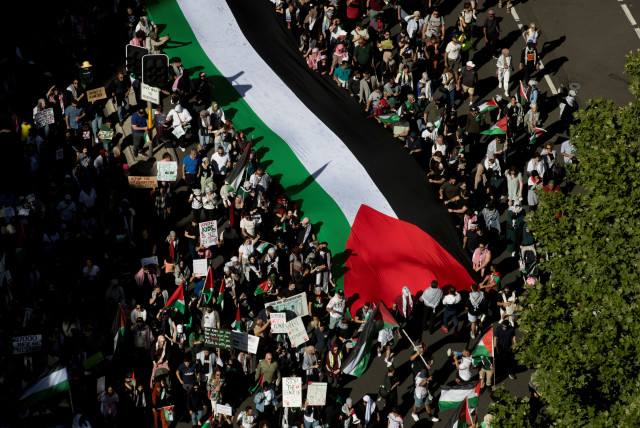Special committee created to commemorate Diaspora Jewish victims of antisemitic attacks

Based on figures from the Jewish Agency and the WZO, 155 non-Israeli Jews have been murdered abroad between 1958 and 2024.
For the first time in Israel's history, a special joint committee has been established to commemorate the lives of non-Israeli Diaspora Jews who were killed in antisemitic attacks, the government has announced.
The committee was created to implement Resolution No. 492 from May 2023, which pledged to establish it in “recognition of the need and moral obligation to commemorate the Diaspora Jews who are not citizens of Israel.”
According to the government in June, based on figures from the Jewish Agency and the World Zionist Organization, some 155 non-Israeli Jews were murdered abroad between 1958 and 2024.
This includes nine who have died as a result of antisemitic attacks since October 7.
“The Jews who were murdered in the Diaspora are an inseparable part of the national memory and communion,” MK Oded Forer (Yisrael Beytenu) said. “The recognition of Jews who were murdered overseas as victims of hostile acts creates a deep connection of Diaspora Jewry to the nation-state.”

The committee is to be made up of the government, ministries, and national institutions such as the Jewish Agency and the World Zionist Organization. It will be led by WZO chair Yaakov Hagoel and Diaspora Ministry Director-General Avi Cohen-Scali and will be under the direction of the Secretary-General of The Jewish Agency for Israel, Josh Schwarcz.
The committee will work to formulate a list of victims who are eligible for commemoration, according to a list of criteria. In order to be eligible, the incident must constitute a “hostile act injury” and have been carried out by an “organization or person that is hostile to the Jewish people” or where the aim “was to harm the Jewish people or a Jew for being Jewish.”
Other criteria include that victims were attacked because of their Jewishness (real or perceived) and that the injury was based on antisemitic or anti-Zionist perception.
Hagoel explained earlier this year that the inspiration for the committee came after two Jews were murdered in Djerba, after which he put forward the idea to Diaspora Minister Amichai Chikli.
“We are one nation, and the state of the Jews is not just the state of those who live in it,” he said. “The committee is doing historical justice that strengthens the unbreakable bond between all parts of the Jewish people and the State of Israel.
“We are all witnesses to the severe wave of antisemitism that plagues Diaspora Jewry, especially since the beginning of the ‘Iron Swords’ war,” Hagoel said. “The decision to commemorate the Jews in the Diaspora who were murdered on antisemitic grounds strengthens the mutual guarantee and shared destiny between the State of Israel and the Jewish people, in all its Diasporas.”
The words of victims and their families
Haim Fine, son of Elliot Fine, who was murdered in Cardiff on September 19, 1981, said that “the person who committed the murder was a neighbor of German descent. One Saturday morning, Dad was walking with three of the children to synagogue, and the neighbor murdered him with a knife and severely injured my sister. Following the murder, my mother decided that we would make aliyah to Israel. Since then, on every Memorial Day, I felt as though we did not belong.”
Michele Rosenthal, whose sister Cecil and father David were murdered in the 2018 Tree of Life shooting in Pittsburgh, said that “my sister and father had a very strong sense of belonging to the community in which they grew up. After the shooting at the synagogue, the entire city came together.
“My sister and father had a lot of influence on the Jews in the community, and only after their death did I discover just how much. Israel was a significant place in their lives, and I thank Israel very much for choosing to recognize them as victims of hostile acts.”
The government has invited those interested in putting forward someone for commemoration to send proposals in the form of a letter.
